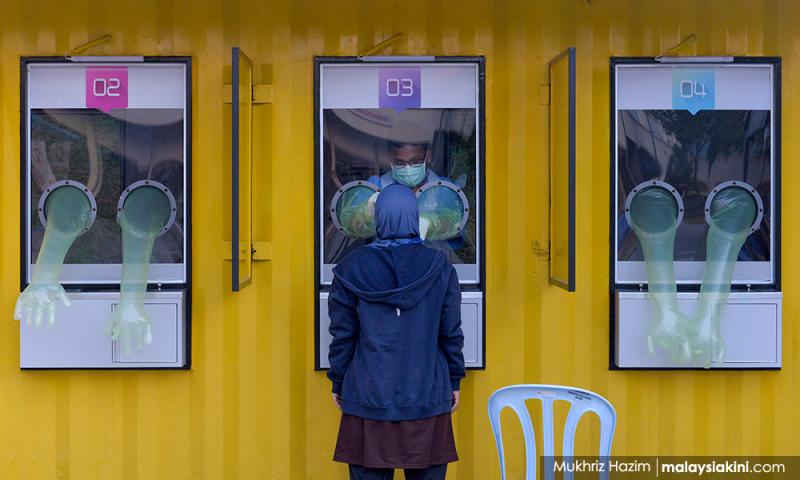KINIGUIDE | Symptoms, vaccines and what's new with Omicron
KINIGUIDE | In yesterday’s KiniGuide, we looked at the Omicron variant situation in Malaysia and how the government responded to the new threat.
A large part of the government response is to ramp up Covid-19 booster shots. As of Sunday, 78.6 percent of Malaysia’s population is fully vaccinated, of which 28.7 percent have also received a booster shot.
Progress in primary vaccinations has stagnated for months now as most eligible people have received their shots. A few thousand doses are administered per day.
Meanwhile, an average of more than 210,000 booster doses are administered per day.
But these vaccines were developed based on the Covid-19 strain that was first isolated in Wuhan, China in January 2020, and the millions of infections worldwide provided ample opportunities for an otherwise slow-evolving virus to mutate.
In this second KiniGuide of a two-part series, we look at how well current Covid-19 vaccines and tests are holding up against the new variant and wrap up with what else we have learnt about it so far.
Do vaccines still work?
Broadly speaking, yes; even though data on this subject is still emerging. However, there are also early signs that the current strategy of countering each new variant with additional doses of vaccines based on the original Wuhan strain is being stretched to its limit.
The good news is that vaccine effectiveness against hospitalisation, severe illness and death remain robust, even though it has been reduced compared to earlier variants. This is supported by data from the UK, Denmark, South Africa, and other countries.
As mentioned in yesterday’s guide, Omicron’s reduced severity in South Africa is mostly attributed to immunity through prior infection or vaccination, though 25 percent of that reduced severity is probably due to changes in the virus itself.
The UK Health Security Agency (UKHSA), for example, found that even a single vaccine dose reduced the risk of hospitalisation by about 52 percent, while the second dose raises this to around 64 percent.
The effect wanes over time, down to 44 percent after six months.
However, a booster shot can increase this to more than 80 percent. It is not yet clear how long this protection will last since the booster rollout is a relatively recent development, but it has lasted at least two-and-half months so far and will likely hold for much longer.
RM12.50 / month
- Unlimited access to award-winning journalism
- Comment and share your opinions on all our articles
- Gift interesting stories to your friends
- Tax deductable

 Koh Jun Lin
Koh Jun Lin